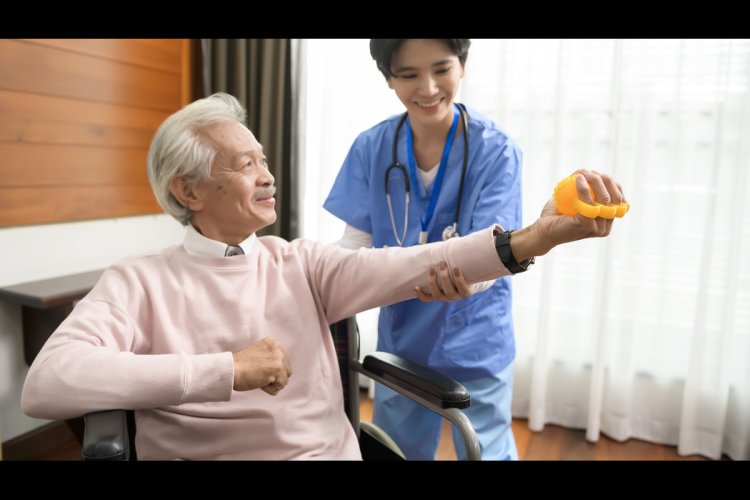9 Key Benefits of Professional Home Nursing Care
Discover the 9 key benefits of professional home nursing care, including personalized support, faster recovery, medical safety, comfort, and peace of mind.

When it comes to caring for a loved one who is sick or recovering from an injury, professional home nursing can provide many benefits. From personalized care plans to skilled nursing services, a professional home nurse can help ensure that your loved one receives the care they need in the comfort of their own home. In this article, we will discuss 9 things to expect from professional home nursing services, so you can make an informed decision when it comes to your loved one’s care.
1. Personalized Care Plans
When you hire a professional home nurse, you can expect a personalized care plan that is tailored to your specific needs. The care plan starts with a comprehensive initial assessment of your medical condition, lifestyle, and personal preferences to determine the most appropriate approach to care. From there, a customized care plan is developed that outlines the specific services and support you require to remain comfortable and maintain your independence. As your condition changes, the care plan is regularly updated to ensure that you continue to receive the best possible care.
2. Safety and Monitoring
Professional home nursing services prioritize the safety and well-being of their clients. Home nurses are trained to identify potential hazards and implement measures to prevent falls and other accidents. They also work with clients and their families to develop emergency preparedness plans and conduct ongoing safety evaluations.
3. Medication Management
Managing medications can be a complicated and time-consuming process. Home nurses offer comprehensive medication management services to ensure that you receive your medications on time and in the correct dosage. They also work closely with healthcare providers to coordinate your care and keep them informed of any changes in your condition.
4. Skilled Nursing Services
In addition to providing basic support with ADLs, home nurses offer a range of skilled nursing services to support clients with more complex medical needs. These services may include wound care, tracheostomy and ventilator care, and feeding tube management.
5. In-Home Rehabilitation
Luckily, home nursing care provides in-home rehabilitation services that can help speed up the recovery process. The three types of rehabilitation services offered by home nurses are physical therapy, occupational therapy, and speech therapy.
Physical therapy is aimed at restoring physical strength, mobility, and functionality. A skilled physical therapist will assess the patient’s condition and develop a treatment plan that includes exercises to build strength, increase range of motion, and improve balance and coordination.
Occupational therapy focuses on improving daily living skills and strengthening the patient’s ability to perform tasks independently. The therapist will help the patient practice and develop essential skills such as bathing, dressing, and meal preparation.
Speech therapists will work with patients suffering from language disorders, speech impairments, and cognitive deficits to improve their communication skills.
6. Emotional and Social Support
Home nursing care extends beyond just physical support. Professional caregivers also offer emotional and social support to patients. Loneliness and isolation are common among seniors and patients with disabilities. That’s where companionship services come in handy. Home nurses provide companionship to patients by engaging in conversations, playing games, and accompanying them to appointments.
Home nurses also offer mental health counseling services to patients experiencing anxiety, depression, or other mental health issues. The counseling services are designed to help patients understand their emotions, develop coping mechanisms, and improve their overall mental wellbeing.
For patients with spiritual needs, home nursing care offers spiritual support services. These services involve connecting patients with clergy or other spiritual leaders for guidance, prayer, or other religious practices.
7. Assistance with Activities of Daily Living
Home nursing care provides assistance with activities of daily living (ADL) to patients who require help with daily self-care activities. The three types of ADL services that home nurses offer are bathing, dressing, grooming, toileting and incontinence care, and mobility assistance.
Bathing, dressing, and grooming services help patients keep up with their personal hygiene needs. Patients who have difficulty using the bathroom or who experience incontinence can benefit from toileting and incontinence care services. Home nursing care also offers mobility assistance services to help patients move around safely.
8. Professional Coordination of Care
Home nursing care services include professional coordination of care. When patients receive home nursing care, the home nurse will work closely with family members and healthcare providers to ensure that the patient receives the best possible care. The home nurse will communicate with other healthcare providers, such as doctors and therapists, to ensure that the patient’s care plan is being implemented effectively.
If the patient’s condition changes, the home nurse will adjust the care plan accordingly. The home nurse will also provide regular check-ins and reporting to family members and healthcare providers to ensure that the patient is receiving optimal care. By coordinating care, home nursing care ensures that patients receive the highest quality care possible.In conclusion, professional home nursing can provide a wide range of services to help your loved one thrive in their home environment. From customized care plans to emotional support, the benefits of professional home nursing are numerous. By knowing what to expect from professional home nursing, you can make an informed decision and provide your loved one with the care they need to live their best life.
Also check:
What's Your Reaction?
















